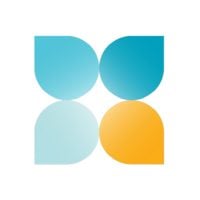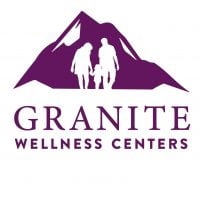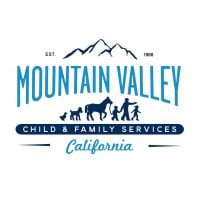Teen Challenge - Twin Rivers Center
Drug Rehab Center in Yuba City, California
Teen Challenge - Twin Rivers Center is a Drug Rehab located in Yuba City, CA that offers a variety of levels of care and accepts private health insurance.
About Teen Challenge - Twin Rivers Center in California
Teen Challenge NorWestCal Nevada - Twin Rivers Center is a drug treatment facility located in Yuba City, California. This center specializes in providing treatment for individuals suffering from alcoholism, opioid addiction, substance abuse, and drug addiction. Their facility offers various levels of care, including inpatient and residential treatment, as well as sober-living and half-way programs. Teen Challenge NorWestCal Nevada - Twin Rivers Center accepts private health insurance, making their services accessible to individuals seeking help in their journey towards sobriety.
At Teen Challenge NorWestCal Nevada - Twin Rivers Center, individuals struggling with addiction can find a range of services to support their recovery process. The facility offers aftercare support, providing continuing assistance to individuals once they have completed their initial treatment. In addition to aftercare support, Teen Challenge NorWestCal Nevada - Twin Rivers Center provides comprehensive drug rehab programs. These programs may include counseling, group therapy sessions, and educational workshops, all aimed at addressing the root causes of addiction and equipping individuals with the necessary tools to achieve and maintain sobriety.
Genders
Ages
Modality
Additional
Conditions and Issues Treated
It’s not easy getting sober on one’s own, or even going to rehab and escaping the grasp of addiction by oneself. Substance abuse treatment gives addicts a place to stay sober while learning what it takes to quit for good. They will learn from others about what works and what doesn’t work with remaining drug-free.
Treatment centers such as Teen Challenge - Twin Rivers Center focus on the needs of individual addicts to heal them. There is a combination of physical and mental therapies that treat the root cause of the addiction, whether it be family problems, stress, or past traumatic events.
The final benefit of substance abuse treatment is introducing new people who can help in your recovery after you leave Teen Challenge - Twin Rivers Center. Through group therapy sessions with other addicts and attending support meetings once a day, a person will learn how to interact with others and cope with cravings. This is a chance for you to rebuild your social circle healthily after you leave treatment.
Opioid addiction starts when a person becomes addicted to legal or illegal opioids. The addiction can happen quickly, in just a matter of days. Opioid withdrawal can be extremely uncomfortable and lead the user to continue to use even if they want to quit. Stopping using an opioid requires medical observation. Sometimes inpatient treatment with a medically supervised detox is necessary for managing the withdrawal process while learning lasting tools for maintaining recovery. Medications may be used in some cases of opioid addiction.
Opioid addiction is one of California‘s most prominent forms of addiction. It’s treated by detoxifying the body so that the chemicals from the medications no longer impact them and by therapies to correct behavior and target the root of the problem.
Levels of Care Offered
This center offers a variety of custom treatment tailored to individual recovery. Currently available are Aftercare Support, Drug Rehab, Inpatient, Residential, Sober-Living / Half-Way, with additional therapies available as listed below.
Individuals who are suffering from severe addiction or have a high risk for dangerous health concerns are often recommended to receive inpatient treatment.
Choosing to enter an inpatient treatment program is beneficial for people who are suffering from severe addiction, or who have a high risk for dangerous health concerns.
Inpatient treatment is beneficial for:
- People who have a history of severe withdrawal.
- People who have attempted to overcome addiction on their own without success.
- People who have a history of relapse, or have recently relapsed.
- People at risk for drug overdose or withdrawal-related complications.
- People with medical conditions that are worsened by drug or alcohol use.
Sober living homes (abbreviated SLHs or sometimes sober houses) are temporary housing for recovering addicts. The typical SLH functions as a halfway house, providing a stable living environment for addicts in recovery. While at an SLH, residents typically meet with various therapists on site and attend regular 12-step meetings as well as other recovery group meetings.
Residential treatment programs are those that offer housing and meals in addition to substance abuse treatment. Rehab facilities that offer residential treatment allow patients to focus solely on recovery, in an environment totally separate from their lives. Some rehab centers specialize in short-term residential treatment (a few days to a week or two), while others solely provide treatment on a long-term basis (several weeks to months). Some offer both, and tailor treatment to the patient’s individual requirements.
Aftercare support should take place after outpatient treatment has ended. There are a few different types of aftercare support that patients can seek. These include 12 Step, Self-help groups (AA, NA), Therapeutic communities, Long-term, structured sober living arrangements, and Halfway houses (residential treatment centers).
Therapies & Programs
Individual therapy involves one-on-one sessions between the patient and therapist. It provides patients with a safe environment to openly discuss personal and sensitive issues with the therapist. They find the therapist as someone they can trust. Individual therapy aims to identify the core issues that would have led the patient to substance abuse and address them effectively. The therapist can develop patient-specific customized solutions through individual therapy, which aids speedier recovery.
Family therapy is a group problem-solving that aims to improve communication and relationships between the addict, their family, and sometimes friends. The main goal of family therapy for drug addiction is to create an environment where communication can occur without judgment, hostility, or blame. The therapist is with the family as they learn to communicate differently, especially with the addict when s/he is using. The family can learn to reduce their enabling behavior or rally together and support each other during tough times.
An addict’s family can play a vital part in helping them to avoid relapse because they can spot the warning signs and help them get back on track before it becomes too much of a problem. Family therapy is one of the most effective ways to help addicts stay on the path to long-term sobriety. When a drug addict decides that they want to try and get sober, it takes the support of every person they love to succeed. It can be incredibly difficult for loved ones to watch an addict go through the pain and suffering of withdrawal, but by being there with them and supporting them, they can help to make sure that the addiction never returns.
Groups typically involve meetings with other recovering addicts who can relate to one another’s experiences. They might meet in person or online and typically focus on the process of staying sober rather than overcoming a specific addiction.
In these groups managed by Teen Challenge - Twin Rivers Center, addicts can build a sense of community and develop strong emotional connections with others who understand what they are going through. These beneficial relationships can help addicts overcome their cravings and prevent relapse at any point during the recovery process.
Since addiction is a chronic physical and mental illness, addicts need to learn as many life skills as possible. Many drug treatment centers offer life skills activities as part of their addiction recovery programs. Examples include cooking classes, employment training, resume writing seminars, parenting classes, and computer training. Life skills activities help addicts find employment, take care of their families, and give back to the community.
Patient Experience
Experiential Therapy at Teen Challenge - Twin Rivers Center
Experiential Therapy teaches people how to think differently about their lives and change their emotions by changing their behavior. This type of treatment is accomplished with various activities that may involve acting, props, arts and crafts, animal care, or other tools that may be effective.
This therapy aims for patients to release suppressed thoughts that cause bad feelings and drug addiction. Role-playing, arts and crafts, music, animal care, rock climbing, etc., are some of the activities used in this therapy. Gradually an individual will feel calmer and more loving which will change their perception positively. In addition to treating drug addiction, experiential therapy is beneficial for different behavioral and eating disorders.
Payment Options Accepted
For specific insurance or payment methods please contact us.
Is your insurance accepted?
Ask an expert, call (888) 674-0062
Teen Challenge Associated Centers
Discover treatment facilities under the same provider.
- Central Valley Teen Challenge in Reedley, CA
- Teen Challenge - Happy Valley Women & Children's Center in Anderson, CA
- Teen Challenge - Alpha Henson Men'Center in Lincoln, CA
- Teen Challenge - Asbury Family Center in San Jose, CA
- Los Angeles Teen Challenge in Lynwood, CA
Learn More About Teen Challenge Centers
Additional Details
Specifics, location, and helpful extra information.
Yuba City, California 95991 Phone Number(530) 751-9511 Meta DetailsUpdated November 25, 2023
Staff Verified
Teen Challenge - Twin Rivers Center Patient Reviews
There are no reviews yet. Be the first one to write one.
Yuba City, California Addiction Information
More than 3 million of California's citizens are addicted to illegal drugs. Almost 800,000 people use hard drugs, almost 5 million use marijuana, and another 2.1 million abuse alcohol every year. Other substance abuse issues such as binge drinking and teen drug use are also common. Many illegal drugs such as cocaine, heroin, methamphetamine, and marijuana are smuggled into the state from Mexico.
Over 1,000 admissions to drug rehab facilities and almost 2,000 hospitalizations related to drug abuse in Yuba City, CA in 2016. In 2012-2013, there were a total of 4,398 admissions to drug and alcohol rehab centers in Yuba City. Many resources are available to help you find the best drug treatment facility to get sober, and talking to a professional about your options can be incredibly helpful.
Treatment in Nearby Cities
- Union City, CA (108.9 mi.)
- Hoopa, CA (171.4 mi.)
- Bakersfield, CA (296.9 mi.)
- Oxnard, CA (367.3 mi.)
- Eureka, CA (177.4 mi.)
Centers near Teen Challenge - Twin Rivers Center
The facility name, logo and brand are the property and registered trademarks of Teen Challenge - Twin Rivers Center, and are being used for identification and informational purposes only. Use of these names, logos and brands shall not imply endorsement. RehabNow.org is not affiliated with or sponsored by Teen Challenge - Twin Rivers Center.





